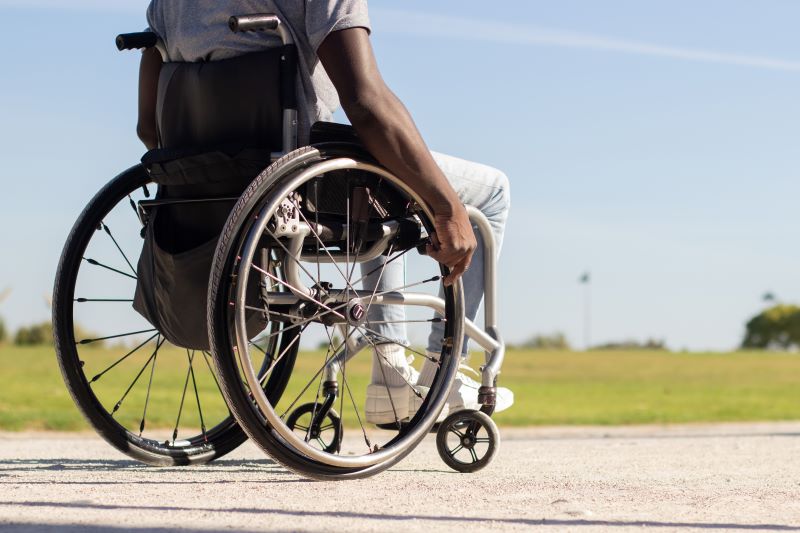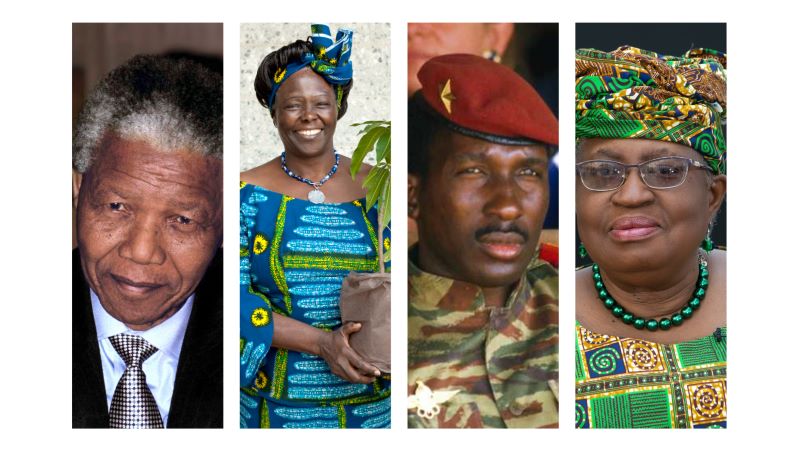Image by pch.vector via Freepik
In a commendable step forward, Nigeria has ratified the Protocol to the African Charter on Human and Peoples’ Rights on the Rights of Persons with Disabilities in Africa, commonly referred to as the African Disability Protocol. This significant achievement represents a vital progression in the ongoing efforts to uphold the rights and dignity of individuals with disabilities across the continent.
Who Does This Affect?
Understanding Nigeria’s diverse experience with disability is vital to contextualizing the Protocol’s impact.
- The 2006 census recorded around 3.25 million persons with disabilities (about 2.3 % of the population)
- Independent NGOs like the Centre for Citizens with Disabilities suggest the true figure may be closer to 27 million (over 10 % of Nigeria’s 216 million population).
- Among these, approximately 3.6 million face severe functional limitations.
- Across Africa, at least 80 million persons with disabilities live below the poverty line, facing entrenched barriers in education, healthcare, employment, housing, social protection, justice, and political participation.
Adopted by the AU in Addis Ababa on 29 January 2018, the Protocol is Africa’s first regional human‑rights instrument explicitly designed to address structural, cultural, and systemic discrimination against persons with disabilities. It confronts challenges like harmful traditional practices, entrenched superstitions, and inaccessible societal systems that have plagued communities across Africa for generations.
This Protocol complements the UN Convention on the Rights of Persons with Disabilities (CRPD) and Nigeria’s Discrimination Against Persons with Disabilities (Prohibition) Act, 2018, by embedding practical, context‑specific mandates. For instance, it includes provisions on accessible hygiene facilities, community support, sign language recognition, and spotlights inequalities in digital spaces especially relevant in our era of rapid digital expansion.
James Lalu, Executive Secretary of the National Commission for Persons with Disabilities (NCPWD), said at the signing:
“This is a historic moment for Nigeria and for people with disabilities across Africa. The signing of the African Disability Protocol demonstrates our commitment to promoting the rights of people with disabilities and ensuring that they are included and valued members of our society.”
Legal Integration:
a. The Discrimination Against Persons with Disabilities (Prohibition) Act, 2018
Enacted after 11 years of campaigning, the 2018 Act criminalises discrimination and mandates accessibility modifications in public facilities, transport, and communications within a five-year compliance window. It also established the National Commission for Persons with Disabilities (originally founded in 2012, institutionalised in 2020) as the key regulatory authority.
b. CRPD footprint
Nigeria ratified the UN CRPD in March 2007, with its Optional Protocol following in September 2010. It has been reported only once so far (initial Cycle 2012, submitted 2021). The CRPD laid the foundation for domestic disability rights, but implementation has been inconsistent.
c. Protocol harmonization
By ratifying the African Disability Protocol, Nigeria has legally committed to obligations beyond the CRPD, such as:
- Addressing harmful traditional practices and beliefs, including witchcraft allegations.
- Ensuring accessible communication and healthcare, particularly in rural and digital contexts.
- Mandating sign-language recognition, bolstering minority-language inclusion.
- Enhancing data collection mandates and monitoring frameworks tailored to Africa’s socio-cultural contexts.
Implementation Roadmap:
Simply ratifying the Protocol isn’t enough. A coordinated roadmap is essential.
a. National action planning
- The Federal Ministry of Humanitarian Affairs, Disaster Management & Social Development leads this effort, alongside the Planning, Justice, and Budget ministries.
- A National Disability Action Plan should be updated or newly drafted, with concrete targets (e.g., 2026 completion of nationwide accessibility audits, 2028 universal secondary school inclusion).
- Allocate a dedicated budget line across health, education, transport, justice, digital, and social services reporting annually via NCPWD.
b. Monitoring & enforcement
- The National Commission for Persons with Disabilities, as Nigeria’s CRPD focal point, will also coordinate Protocol compliance.
- A multi-stakeholder Inter-ministerial Implementation Committee, including civil society and DPO representation, should hold quarterly oversight meetings.
- Nigeria is obliged under Article 34 of the Protocol to report to the African Commission on Human & Peoples’ Rights ideally creating a publicly accessible progress dashboard.
c. Civil‑society synergy
- DPOs like Amputees United, Joint National Association of Persons with Disabilities (JONAPWD), will lead community-awareness, legal support, sign-language training, and assistive-tech outreach.
- NGOs such as Sightsavers and CIPESA will aid with technical assistance, capacity building, and data collection for NTRO and universal design audits.
Private Sector & Business Engagement
Accessibility extends beyond public institutions and business is part of the equation.
- Must include Nigeria’s market: tech companies, developers, and telecommunication providers must comply with digital-accessibility (article 24), offering accessible apps, websites, and content.
- Employers should implement reasonable accommodations, ramped-up hiring, barrier-free office access, and inclusive hiring incentives.
- Assistive technology: domestic innovators and foreign partners can foster affordable wheelchair, prosthetic, and communication-aid production.
While global frameworks, such as the UN Convention on the Rights of Persons with Disabilities (CRPD) and Nigeria’s Discrimination Against Persons with Disabilities (Prohibition) Act of 2018, provide essential legal protections, the African Disability Protocol addresses specific needs within Africa’s unique social, cultural, and historical context. It offers practical, locally relevant solutions to the barriers that have persisted for too long.
This Protocol is not just a legal instrument; it signifies a call to action. As we prepare to delve deeper into its provisions in the coming days, it is crucial for stakeholders at all levels to advocate for its full implementation. Upholding the rights of persons with disabilities is not merely a legal responsibility; it represents a commitment to fostering inclusive representation and active participation from all individuals, regardless of ability.





